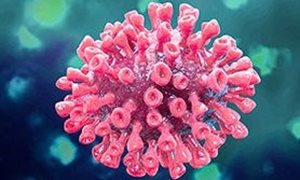5 April 2019
Tdap vaccination led to short-term potentiation and long-term repression of monocyte-derived cytokine responses, and short-term as well as long-term repression of T-cell reactivity to unrelated pathogens. BCG led to short-term and long-term potentiation of monocyte-derived cytokine responses. When given together with Tdap or after Tdap, BCG abrogated the immunosuppressive effects of Tdap vaccination.
Tdap induces immunotolerance to unrelated antigens, which is partially restored by concurrent or subsequent BCG vaccination. These data indicate that modulation of heterologous immune responses is induced by vaccination with Tdap and BCG, and more studies are warranted to investigate whether this is involved in the non-specific effects of vaccines on mortality.
 Certain vaccines such as BCG have non-specific effects, which modulate innate immune responses and lead to protection against mortality from unrelated infections (trained immunity). In contrast, diphtheria-tetanus-pertussis (DTP) vaccination eliminates these beneficial effects of BCG, but the mechanisms responsible were unknown.
Certain vaccines such as BCG have non-specific effects, which modulate innate immune responses and lead to protection against mortality from unrelated infections (trained immunity). In contrast, diphtheria-tetanus-pertussis (DTP) vaccination eliminates these beneficial effects of BCG, but the mechanisms responsible were unknown.
Tdap vaccination led to short-term potentiation and long-term repression of monocyte-derived cytokine responses, and short-term as well as long-term repression of T-cell reactivity to unrelated pathogens. BCG led to short-term and long-term potentiation of monocyte-derived cytokine responses. When given together with Tdap or after Tdap, BCG abrogated the immunosuppressive effects of Tdap vaccination.
Tdap induces immunotolerance to unrelated antigens, which is partially restored by concurrent or subsequent BCG vaccination. These data indicate that modulation of heterologous immune responses is induced by vaccination with Tdap and BCG, and more studies are warranted to investigate whether this is involved in the non-specific effects of vaccines on mortality.
Related news items

Trained immunity: a tool for reducing susceptibility to and the severity of SARS-CoV-2 infection
17 February 2021 In a review in Cell Mihai Netea, Frank van de Veerdonk, Reinout van Crevel and Jorge Dominguez Andres propose that induction of trained immunity by whole-microorganism vaccines may represent an important tool for reducing susceptibility to and severity of SARS-CoV-2. go to page
Invasive fungal infections in influenza and COVID-19
8 July 2020 The Aspergillus fungus is found in the lungs of many COVID patients. A parallel occurs with influenza patients, who often develop a serious fungal infection. Although such a serious fungal infection seems to occur less frequently in COVID-patients, alertness remains necessary, go to page
Trained immunity: a tool for reducing susceptibility to and the severity of SARS-CoV-2 infection
29 June 2020 In a review in Cell Mihai Netea, Frank van de Veerdonk, Reinout van Crevel and Jorge Dominguez Andres propose that induction of trained immunity by whole-microorganism vaccines may represent an important tool for reducing susceptibility to and severity of SARS-CoV-2. go to page.aspx?width=2120&height=1414&ext=.jpg&type=BlockColumn1Zoom1)
New insight into the effect of hydroxychloroquine undermines its use in corona
11 June 2020 Researchers at Radboud university medical center have discovered an as yet unknown effect of hydroxychloroquine. Raphael Duivenvoorden was interviewed in the program Op1 at NPO1 to elaborate on the findings. It seems unlikely that chloroquine has beneficial effect in corona infections. go to page
Terrestrial bacteria can grow on nutrients from space
26 May 2020 Researchers from the Radboudumc describe in an article in Astrobiology that bacteria can survive on an 'extraterrestrial diet', which affected their pathogenic potential. go to page
